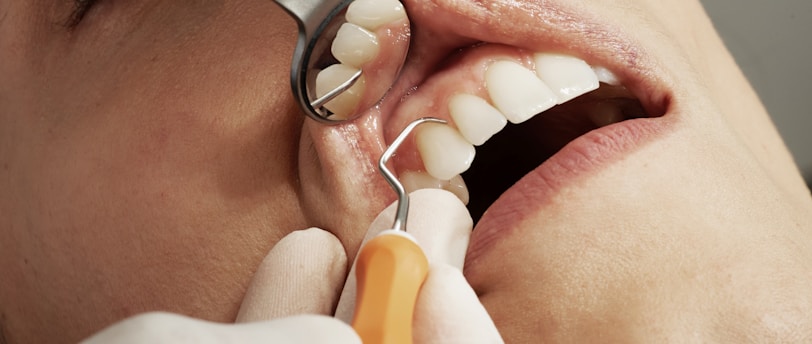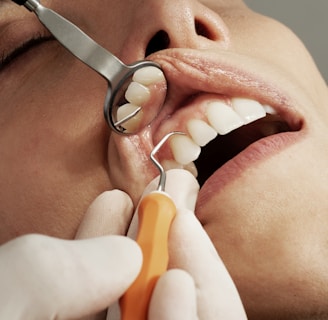How can we decrease the global incidence of dental emergencies?
My ideas on dental emergencies using Vancouver refrencing.
By Annabelle
1/29/20244 min read


Dental emergencies require immediate attention as it can leave patients in severe pain and unable to drink or eat, and in worst cases, the continuation of daily tasks. In fact, the most fatal of emergencies can lead to sepsis; then death. This, we obviously wish to avoid. A reduction in dental emergencies would relieve the pressure on NHS dentists, who, take care of the UK’s oral health. But why? Why do we have such poor oral health? Is it the cookies on offer in Tesco, the failed system that never taught you to brush properly or the dental desert leaving you no choice but to let that tooth go? According to the Global Status Report on Oral Health in 2022, by the World Health Organization, oral diseases are the most prevalent problem affecting the majority of modern society, almost half of the world’s population, (45% or 3.5 BILLION people worldwide) over the life course(1) from early life to old age. This shocking statistic shows the scale of the problem at hand. Those that find themselves in a dental emergency and with nowhere to go, build up in the A&E waiting room increasing the already backed up NHS system.
But, it gets worse, the dental desert is now a commonly used phrase to refer to the inability to find an NHS dentist willing to take on new patients, and have even resorted to archiving patients they can no longer provide for. After speaking to my own dentist, she explained that the government funding of the practice is solely down to how many people they give treatment, and not how many treatments they provide. Therefore, as a deprived area, patients would come in for multiple root canals or fillings taking up hours at a time, but only count as one person towards the funds given. Due to the cap on dentistry funding, clinics must earn their NHS (2)funds by seeing at least 22,000 patients. However, this is easier for practices in wealthy and educated areas as the treatments are shorter and cost less and are able to meet targets, even though it's the deprived areas that need it most.
Not only are impoverished areas of the UK unable to provide, many hard working tax paying citizens are forced to pay for private care. This desperation is due to the evident lack of funding for the NHS, especially dentistry as it is financed less than other health sectors. Unfortunately, this leaves many in poverty(3) with only a 46% paid treatment. The King's Fund(4) report explained patients faced a harrowing burden of cost which many in this living crisis, simply cannot afford. This leads to a simple tooth ache to be left so long that the patient's dull pain and constant headache become a part of the daily struggle of life. It's heart-breaking to think that in the contemporary lifestyle of the 21st century we find cases of children never having visited the dentist or panicked parents pulling out their teeth. Not only this, the importance of good oral health has an adverse effect on mental health as many patients find themselves withdrawn with low self esteem because of their smile, or lack of.
Many patients in desperation, seek oral care abroad from unqualified practitioners without the appropriate conditions for procedures. Left botched and suffering, these people can also no longer afford to be treated in the UK which contributes to the ever expanding dental emergencies. This is clearly a case of the failing capitalist societal issues where demand for services far exceeds the country’s ability to supply.
In order to reduce dental emergencies, foundations such as The Oral Health Foundation developed a programme to promote education about oral health in schools to reduce later life dental emergencies. By starting at the beginning, we are able to eradicate the problem from the source. It can be identified that cultural aspects feed into the plague of poor oral health. Furthermore, the governmental medical chiefs believed that by introducing fluoridation (1964) to the UK’s water supply, it would reduce 28% of tooth decay among the poorest of children. As per usual, many were opposed to the idea at first. However, those families who maybe cannot afford healthy food or a good toothpaste, are actually then protected by the water they drink; the tiny percentage of fluoride ions in the water system remineralises the enamel of the tooth and can help contribute to the reduction of dental emergencies especially among children.
But what about now? If we want to reduce the incidents of dental emergencies and stop the 1 in 50 Britanians who don’t brush their teeth at all on a typical day (YouGov, 2017) (5)we must make a change for the better and quickly. Many argue the class inequalities are a cause for the growing deterioration of the UK’s oral health. The introduction of the sugar tax 2016 was in efforts to reduce consumption of sugary treats, however, healthier foods such as basic vegetables and sustainable meals seem to still be out of the reach of working class people. A possible solution could be a further increase in the sugar tax and a depletion of the cost of vegetables and fruit in order to encourage healthy eating habits alongside supporting charities that supply thousands of families with nourishing food that keeps teeth happy and healthy. But the problem also lies in the practice itself. Dentists need more funding. There should be no government cap and more places at universities should be opened up to cope with the increased demand. As our population exponentially grows, we need to supply health workers with appropriate funding and training to avoid emergencies in the first place.
So, is our future looking like a bright Hollywood smile, or will it become a common practice for home repair dental kits?
1.World Health Organisation. The Global Status Report on Oral Health 2022 [Internet]. www.who.int. 2022 [cited 2022]. Available from: https://www.who.int/team/noncommunicable-diseases/global-status-report-on-oral-health-2022/
2.NHS. ANNUAL REPORT AND ACCOUNTS 2022-23 [Internet]. 2022 [cited 2023]. Available from: https://www.kch.nhs.uk/wp-content/uploads/2023/08/KCH-2022-23-Annual-Report-and-Accounts-FINAL_v2.pdf
3.YouGov. Dental Statistics (UK & Worldwide) [Internet]. Electric Teeth UK. 2020. Available from: https://www.electricteeth.com/uk/dental-statistics/
4.The Kings Fund . Making Care Closer To Home A Reality [Internet]. The King’s Fund. 2023. Available from: https://www.kingsfund.org.uk/insight-and-analysis/reports/making-care-closer-home-reality
5.YouGov. Dental Statistics (UK & Worldwide) [Internet]. Electric Teeth UK. 2020. Available from: https://www.electricteeth.com/uk/dental-statistics/


